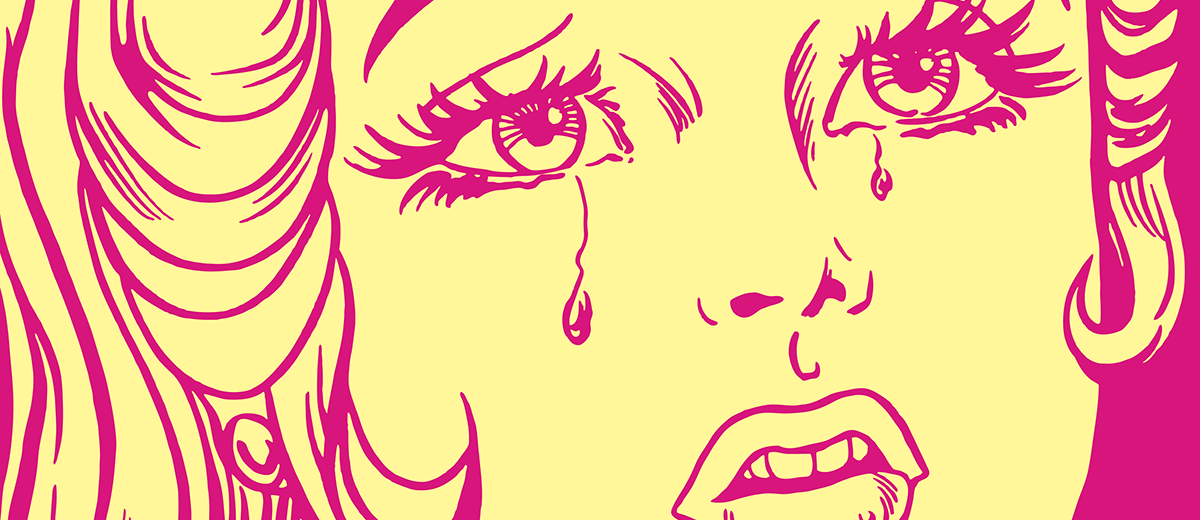Shoulda, coulda, woulda but you didn’t—or maybe you did—and now you regret it. Whether it was a long time ago, last week, or earlier today—one thing is certain—we all have regrets. Even people like me who say bullshit like ‘I have no regrets.’ have SOME regrets. Having some regret is normal. Having a lot of regret is destructive.
I’m not going to tell you how to avoid regret. You are going to make choices and some of them will be choices you wish you hadn’t made. The self-help sector is filled with stories of the regrets of others and how you, awesome person of potential, can avoid a similar fate. I’m not going to tell you to ‘feel the fear and do it anyway’ because that kind of advice isn’t very helpful in every situation. Nor am I going to let you off the hook for bad choices. But I am going to give you some tools for getting on with it and getting rid of (or at least taming) that awful feeling once and for all.
Usually when we experience regret it’s with the clarity that comes after making a bad choice and experiencing a poor outcome. You may wish for a life without regret—but regret is a gift. Regret represents spiritual growth (in whatever form that makes sense to you) and the knowledge that you are capable of more. It gives you the opportunity to reset your internal compass and choose a different path.
WHAT CAUSES REGRET?
Regret is a direct result of our choices. There are two kinds of choices:
1. Choices where we think we have all the information and based on that information we make what we think is a good choice. Examples: A career move or a housing change.
2. Choices where we have all the information (or a lot of information) and we still make a bad choice. Examples: Marrying someone with a drug addiction or smoking cigarettes.
WHAT ABOUT FEAR?
Some people have reduced poor choices down to one thing: Fear. I think there is absolute validity to the idea that you need to push yourself to do things that are outside your comfort zone in order be more self-actualized. However, doing so is not an immunization against making bad choices. The YOLO thing may feel great in the moment but if you make a crappy YOLO call—you might still have regrets.
HOW TO RESET YOUR REGRET
If you are the sort of person that ruminates over regrets, I suggest the following exercise:
1. Write down a list of the things you regret—just the ones you play over and over in your head. Include what happened as a result of your choice. Keep it concise.
2. Then add why you made the choice that you did at that time as well as what you were you hoping to achieve with that choice. Was it one of the two types of choices I listed above?
3. Ask yourself if there is an opportunity to change direction in order to achieve the result you want. If the regret was a career decision for example, is there an opportunity for you to move in a new direction? If it was something you said or did to someone you love, do you need to ask for forgiveness in order to move on?
The purpose of this exercise is to help you see more clearly that most bad choices come from a good place. Often we get a gut feeling about a bad decision before we make it. Fortunately, our intuition is also developed with experience and the next time we feel that little nudge telling us that something is off, we may go a different way!
Now that you know what you did and why you did it and whether or not you can make amends or change course, you need to forgive yourself. If you can’t forgive yourself or you are angry, then use that energy to do something constructive, like making a better plan.
The best way to move on from regret is to live in the now as much as you can and the only way to do that is to take meaningful action every day to make your life better.
STOP IT WITH THE DEATHBED THING
Most of our choices—good or bad—have a cumulative effect. The whole deathbed scenario everyone talks about, full of platitudes like “Nobody wishes they had worked more.” may be perfectly true, however, stop and think why you’re working so hard. To survive? To support your family? These are not things a person should regret. Doing what you need to do to survive is something you should never apologize for. If you don’t like HOW you’re living your life or WHAT you’re doing for work or pleasure, then it’s important to think about ways to change that.
TAKE ACTION
The great thing is that there are opportunities for change all around us. If you hate your job and you come home tired and sad and you numb yourself with bad television or food—which I totally get by the way—start thinking about how much time you’re putting into that. Would you feel less miserable if you spent that time learning a new skill or exercising? Would feeling better give you the confidence you need to find a different job that is more fulfilling? You may not always have control over every aspect of your situation and that makes it even more important to use your free time in ways that nourish rather than deplete you.
Lastly, don’t let the shame of regret overtake you. Own it, learn from it and move on. If you need any motivation to learn what the power of baby steps can do, watch the video below and be in awe of what is possible when we just keep trying.

